In the most forgotten corners of the United States, a dramatic transformation is taking place within the hearts and minds of thousands of people. That change is made possible by groups of Latin American Catholic sisters who have come to the United States at Catholic Extension Society’s invitation to go out to the margins of our society and serve the poor.
In 2013 Catholic Extension Society partnered with the Conrad N. Hilton Foundation to develop the U.S.- Latin American Sisters Exchange Program. The five-year program provides an opportunity for Catholic sisters from religious congregations founded and based in Latin America to come to the United States to pursue a university degree and create new ministries in Extension dioceses among the poor, particularly Hispanic immigrants and their families. It involves sisters from 26 congregations and eight countries.
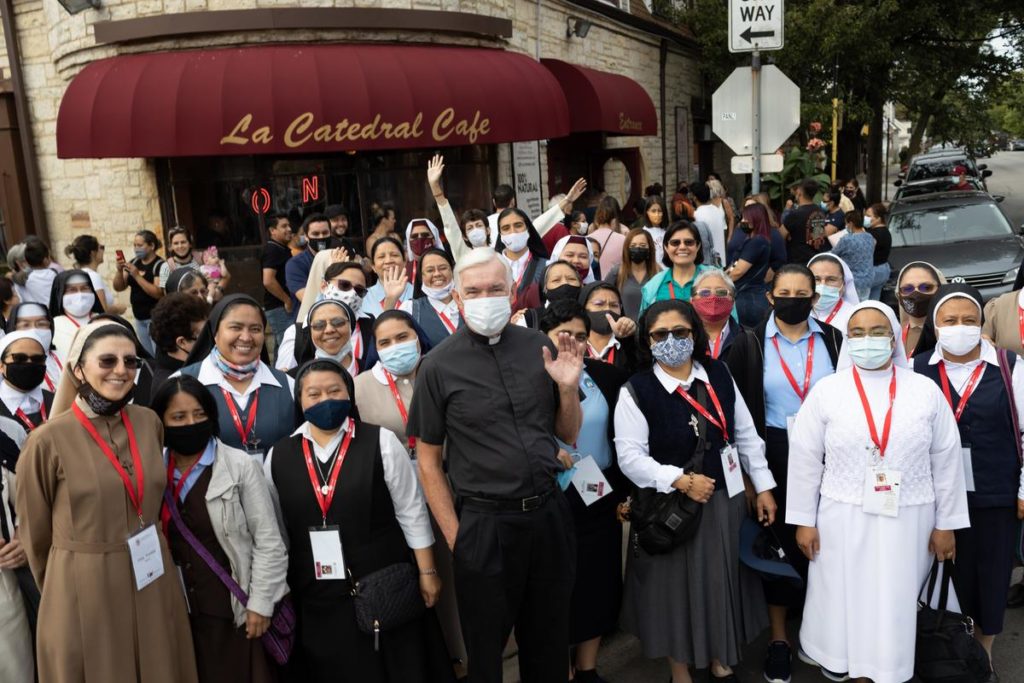
The program has three main objectives. First, it offers higher education degrees to Latin American sisters serving in the U.S., who would otherwise have no such opportunities. Upon completion of the program, these sisters will be able to serve in leadership positions within their religious communities.
Second, during the five-year period in which the sisters are in the U.S., the program helps establish new services and outreach to develop the human potential of tens of thousands of disadvantaged people. The sisters are mindful that their spiritual witness is a sign of hope.
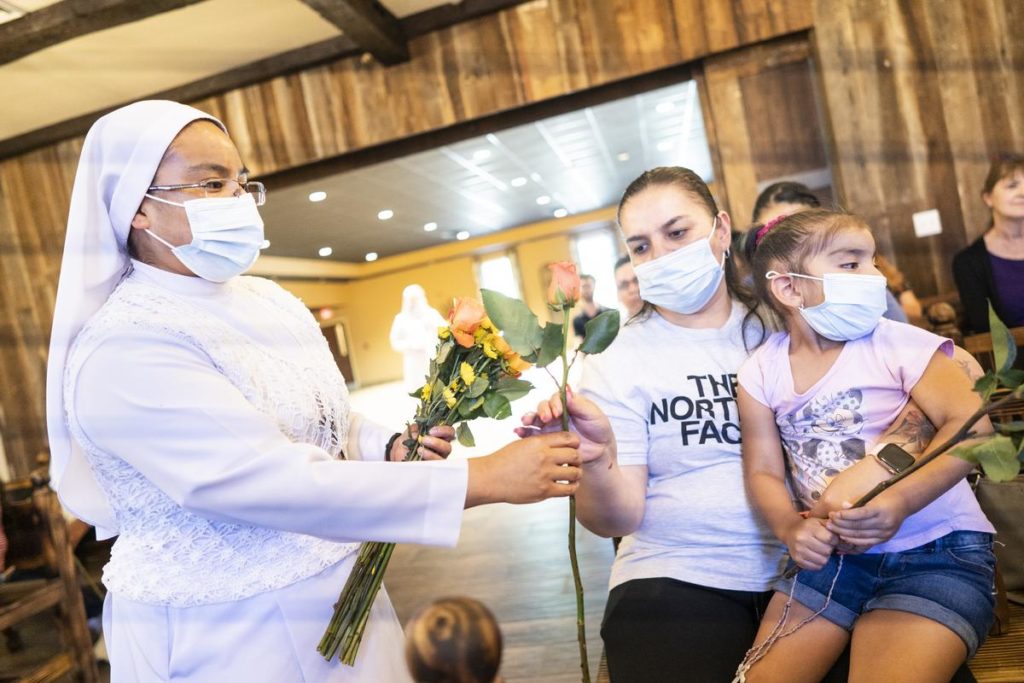
Their services are offered in dioceses supported by Catholic Extension Society, where, according to U.S. Census data, more than 80 percent of the most impoverished counties in the country exist.
Finally, the program seeks to create a robust, collaborative and mutually supportive network of sisters from multiple congregations. A study by the GHR Foundation found that two out of three international sisters ministering in the United States expressed the need for mutual support and mentorship.
The program addresses this need by providing the space and opportunity for the sisters to build lifelong relationships with each other. They share their journey as religious women together and collectively grow in knowledge and friendship. Their joy is so palpable and expressive that, when they convene to attend a class, retreat or training hosted by Catholic Extension Society, they often pray, sing and even dance together.
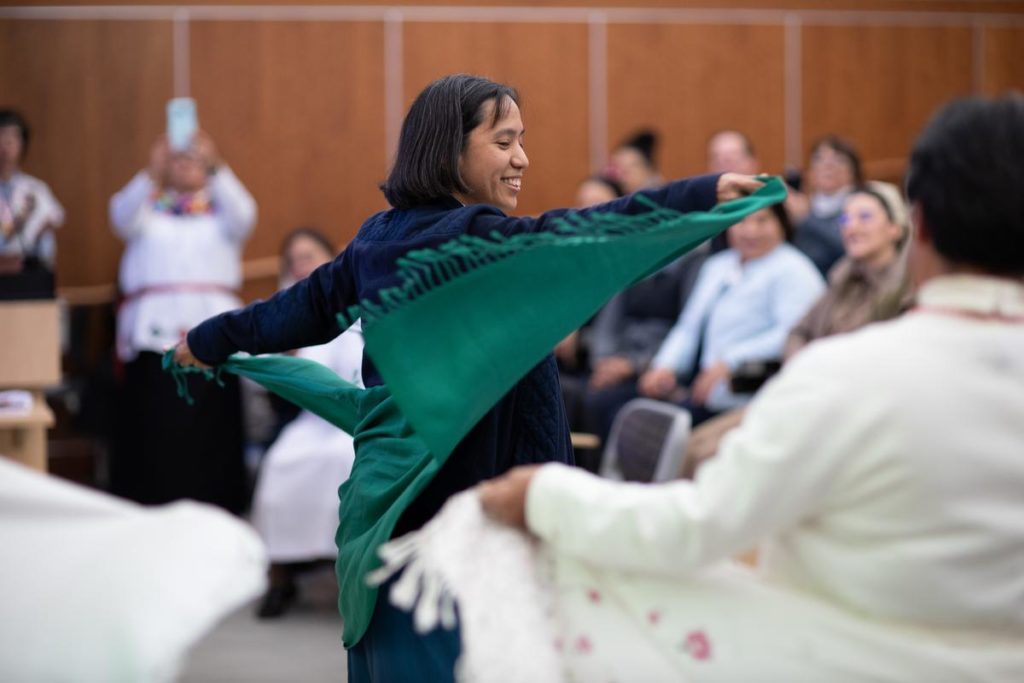
The sisters also meet on Zoom to connect, learn and share questions, ideas and suggestions. All of these formative experiences provide the basis for intercongregational collaborations after the program concludes.
Educational and ministerial achievements
Now in its eighth year, the program has seen immense success. The first cohort of 36 sisters arrived in 2014 and departed in 2019.
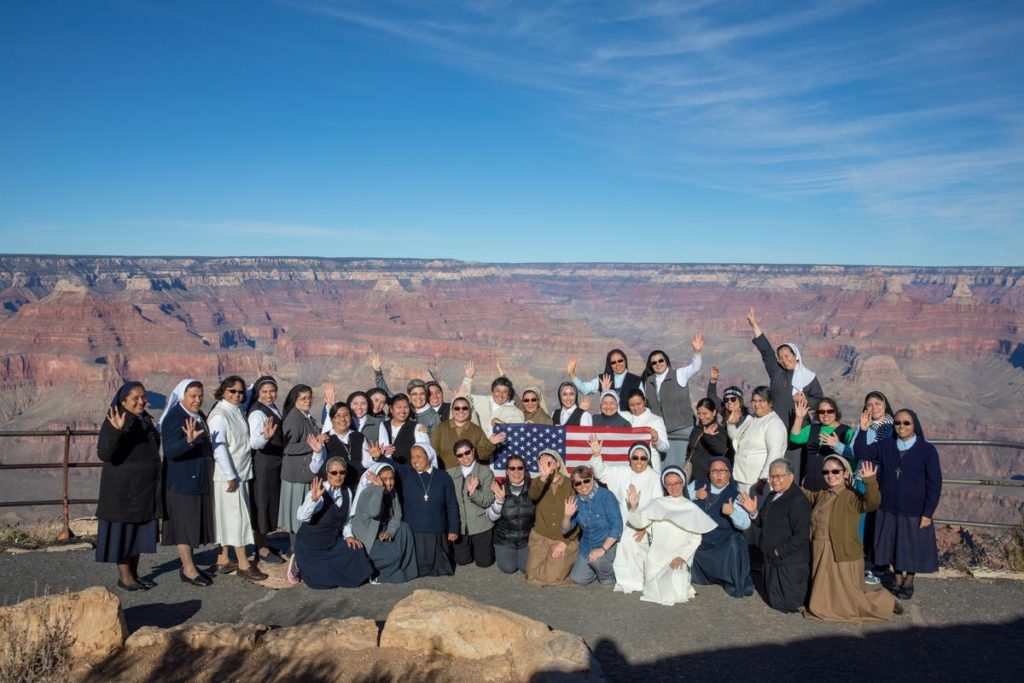
The sisters served 12 diverse communities across the country, stretching from Yakima, Washington, to Portland, Maine.
They did not just serve people and abandon them. Rather, they developed lay leaders who could carry on the mission the sisters started after their departure.
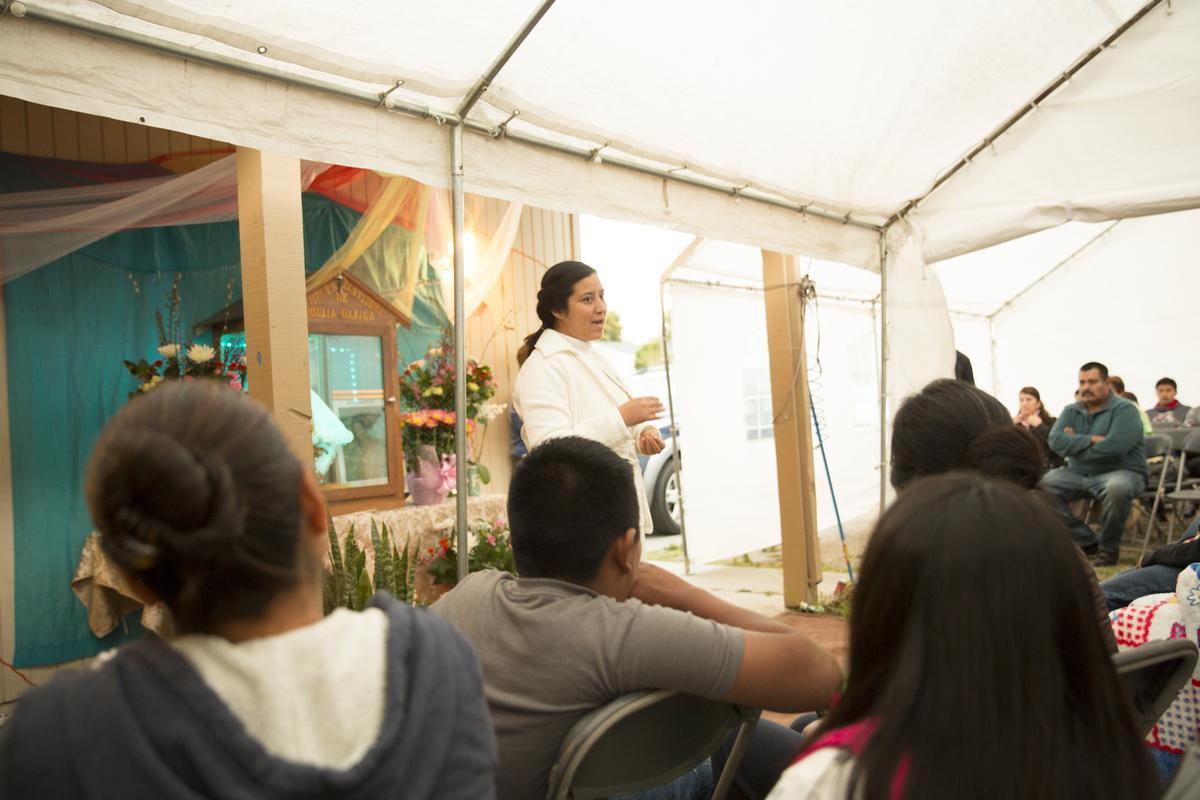
The sisters’ education greatly enhanced their pastoral and leadership skills. Eleven of the sisters in the first cohort earned master’s degrees in applied leadership from Boston College.
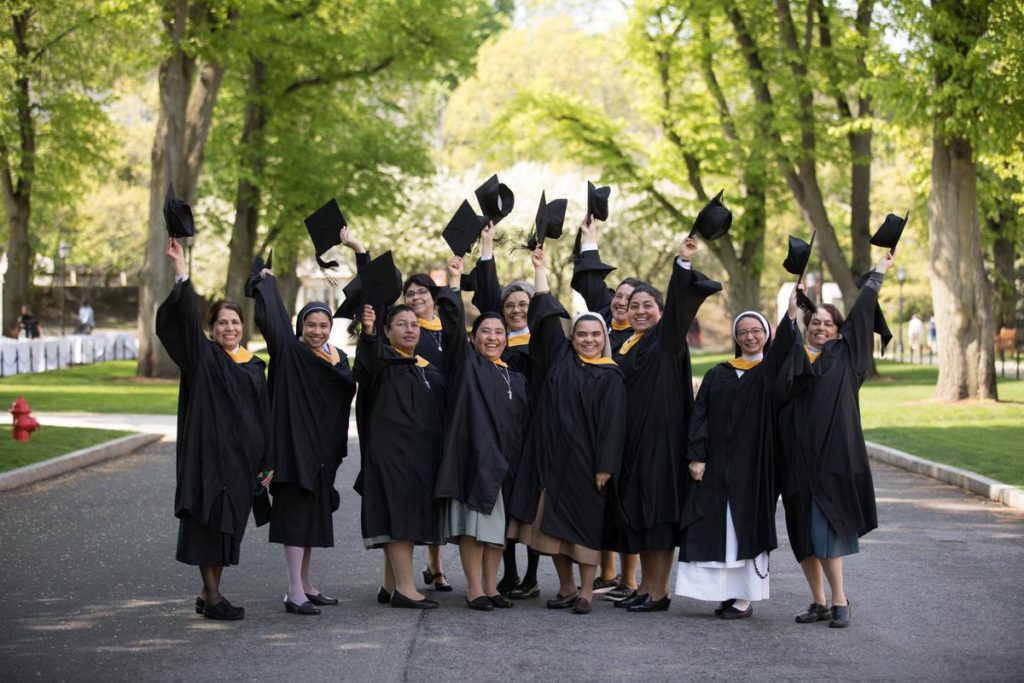
Now back in their home countries, several of them have gone on to leadership roles, including one sister who was elected superior of her Mexico-based congregation and another who has become a formation leader of incoming novices of her community. All of the sisters continue to enjoy and grow from the friendships they developed among each other now three years after the program concluded.
In late 2019 the second cohort of sisters began their journey thanks to new investment from the Conrad N. Hilton Foundation and other partner donors and foundations. This second cohort includes 44 sisters serving 14 dioceses in the U.S.
All are currently pursuing either a bachelor’s degree in health care and human services management or a master’s degree in integrated studies with a concentration in human services and pastoral care. The sisters study together at St. Mary’s University of Minnesota, taking a combination of online courses and periodically convening for in-person classes.
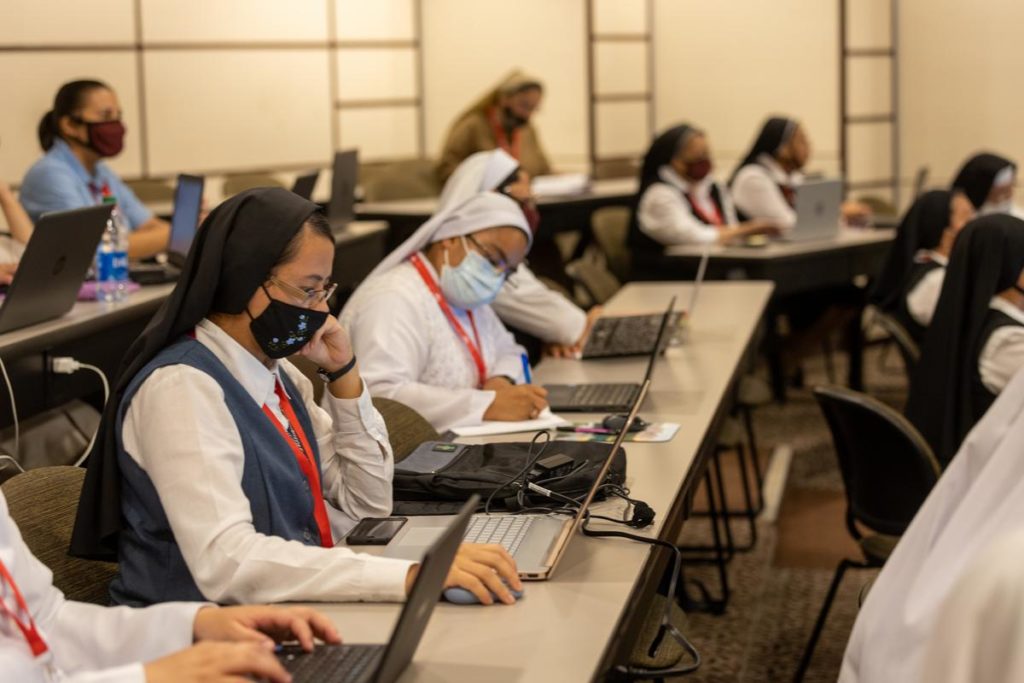
They are studying a variety of topics to improve their knowledge and skills in their ministries, including counseling, cultural competence for service providers, human services systems, community engagement partnerships and more.
In addition to these studies, they have completed several specialized training programs, including a course on social and restorative justice offered through Loyola University Chicago. They also received trauma intervention training through Trauma Recovery Associates, an organization that equips community leaders who do not hold degrees in psychology to identify signs of trauma and offer healthy living skills.
Meanwhile, all of them are in active ministry, meaning they can apply what they learn in the classroom to real situations they encounter in ministry, which relate to the spiritual, psychological and physical well-being of people.
An American mission
More than halfway through their five-year program, four of the sisters in the current cohort recently met with us to share their perspective on their missionary vocations, the unique challenges they face in the communities they serve and their actions to empower the tens of thousands of people they encounter.
Sister Deyanira González Alvarado, part of the Missionaries of Charity of Mary Immaculate, serves in the Diocese of Little Rock, Arkansas.
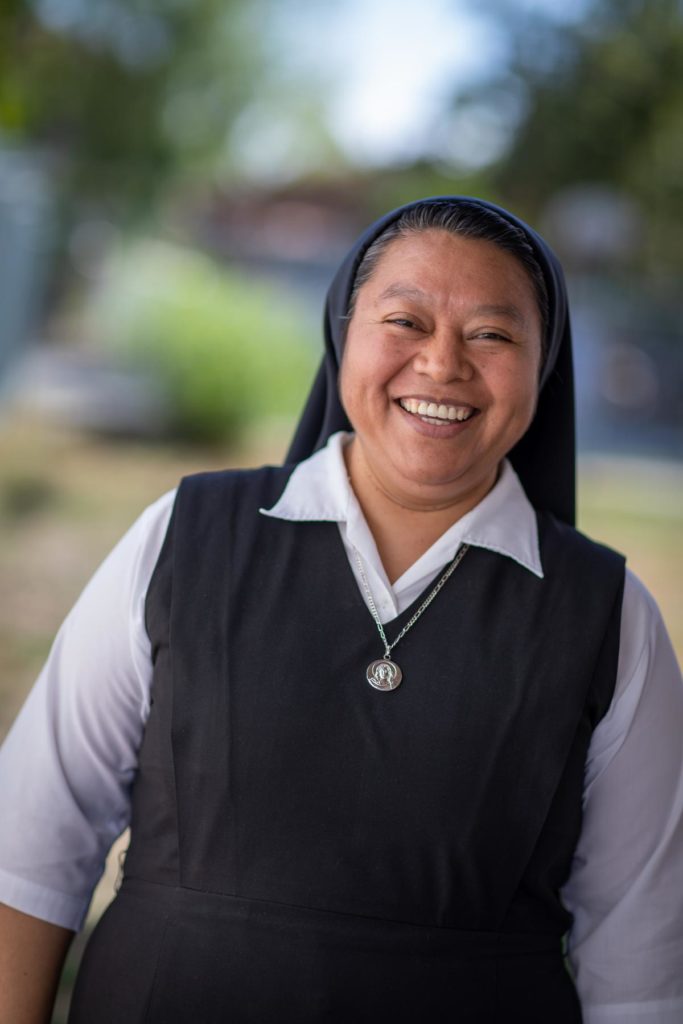
Her friends have asked her why she has gone to the United States for mission work when it’s needed in her home country of Mexico.
“Sometimes those of us from the outside believe everything in the United States is going well,” she said. “That people don’t need anything here and are well off spiritually, economically. We speak of poverty as this economic thing. On the contrary, when I arrived here, I noticed a spiritual poverty, a human poverty and a poverty as it pertains to relationships with God.”
Sister Daysis Evangelista Uriarte Benavidez, a member of the Servant Sisters of the Divine Face, came to the Diocese of Kalamazoo, Michigan, from Nicaragua.
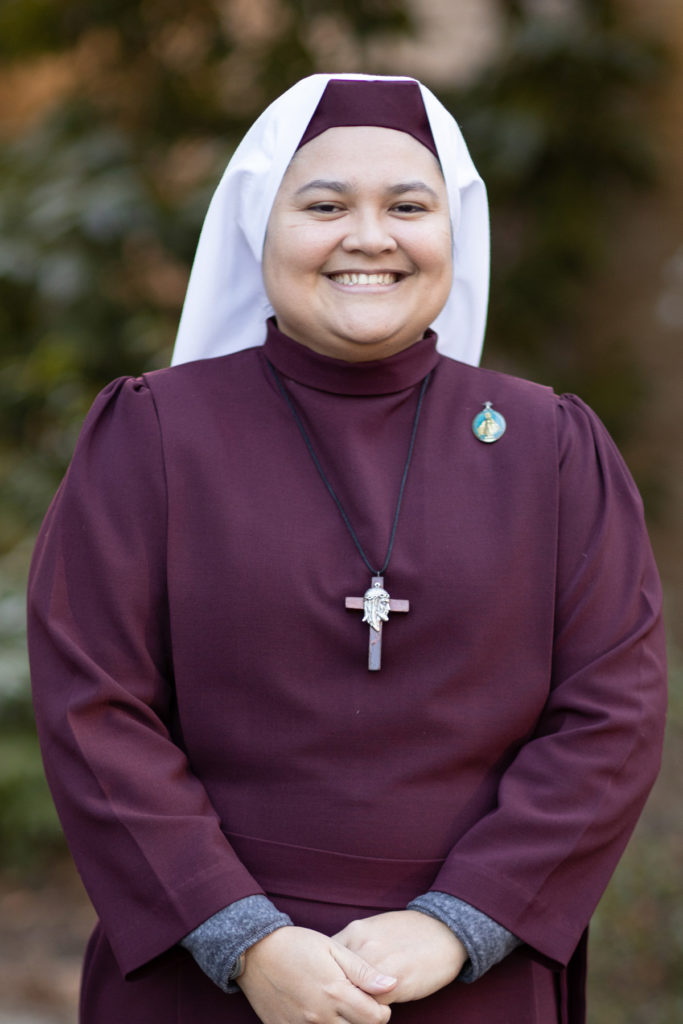
She and her sisters work with Hispanic farmworkers who seasonally migrate to southwestern Michigan each year to harvest crops. Additionally, the sisters build bridges of unity at Holy Angels Catholic Church, where half the congregation is Hispanic and half is white.
“Through recognizing the needs of the people, we can help create one community,” she said.
Sister Zuly Cardenas Carreón, part of the Eucharistic Missionaries of the Infant Jesus of Our Lady of Fatima, came from Mexico and serves in California.
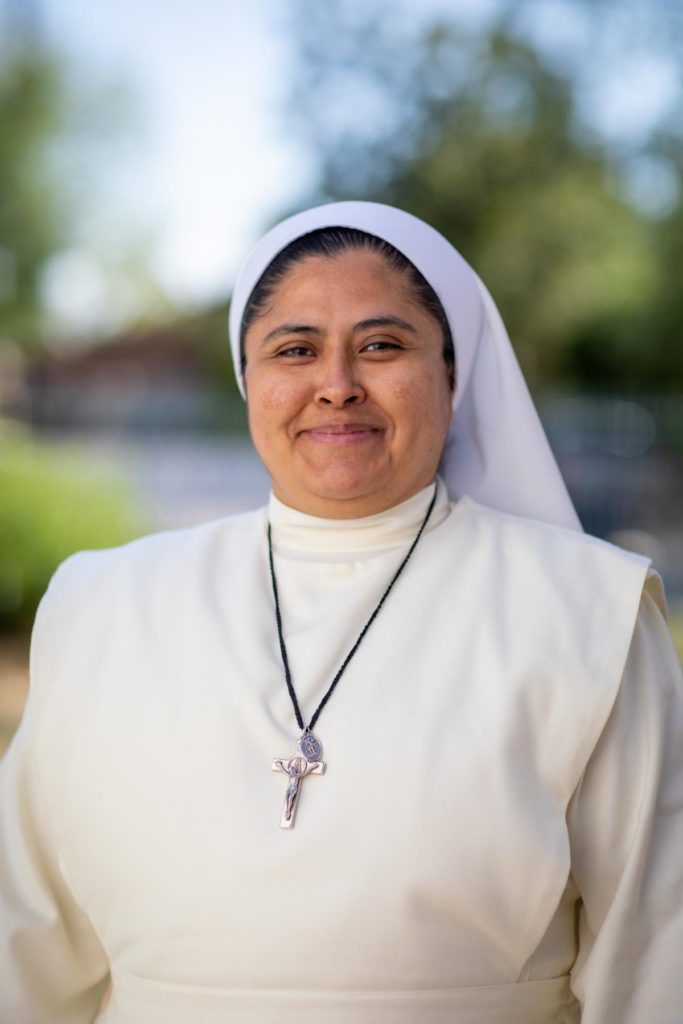
In the Diocese of Sacramento, which covers much of rural northern California, several towns in Butte County were decimated by the 2018 Camp Fire, the deadliest and most destructive wildfire in the state’s history. Years later, the survivors continue to struggle after losing their homes, possessions and, tragically for several families, their loved ones. Sister Zuly described why the presence of the sisters is needed in the area.
“So often, the people feel alone,” she said. “For example, the people affected by the fires would say things like, ‘We get some basic help. People tell us to stop crying, to keep going. But it’s seeing you sisters, the spirituality that you impart on us—that’s what gives us hope to keep going. To be born again.’”
Sister Gabriela Ramírez, a Guadalupan Missionary of the Holy Spirit, is originally from Mexico and has been serving in the United States for 27 years.
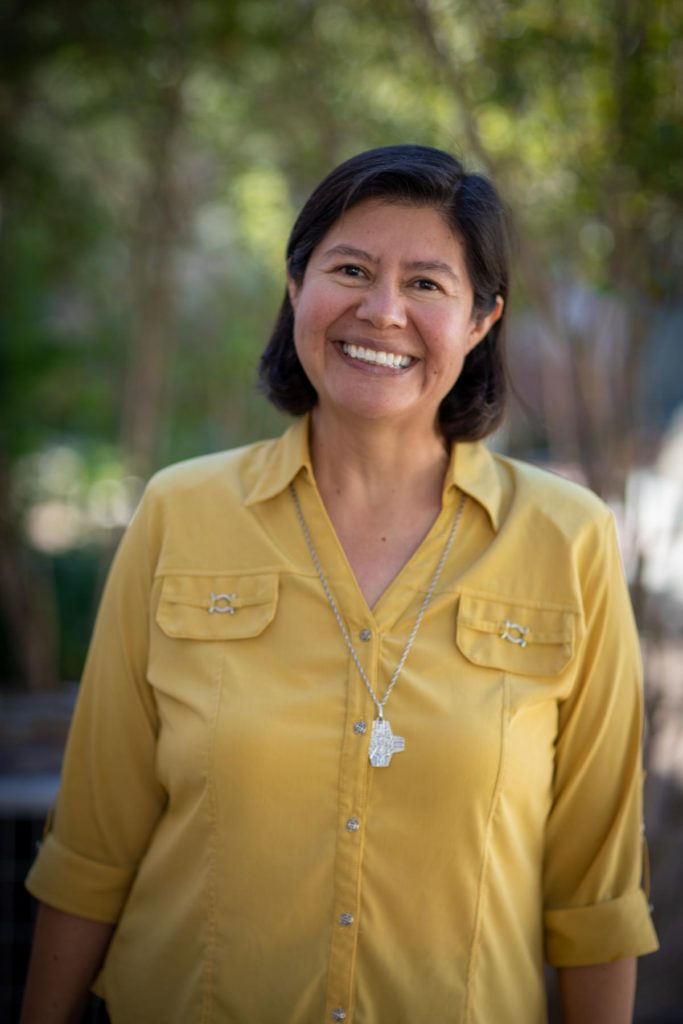
She joined the U.S.-Latin American Sisters Exchange Program when it was expanded to include sisters already in the United States. She sought the opportunity to pursue her master’s degree along with the sisters who had recently arrived. Sister Gabriela currently works with Catholic Social Services in the Diocese of Birmingham, Alabama. Catholics in this region are a minority, around 3 percent of the population. The immigrant Hispanic community, which is largely Catholic and speaks another language, still endures much discrimination.
“The people don’t see them as children of God, that we are equal,” said Sister Gabriela. “It’s important for us to be that bridge, to make them visible and to promote their human dignity.”
Developing human potential
The sisters work to develop the God-given potential within each person they encounter. By accompanying them in their struggles and providing tools and resources to improve their spiritual, psychological and physical health, they help these individuals—mothers, fathers, grandparents, children—understand their worth and the value they bring to their families and communities.
A significant aspect of the ministry involves attending to the mental health struggles that have plagued so many immigrant people during the pandemic in communities where the sisters serve. The collective impact of their work is immense; the sisters have provided more than 34,000 “human development service” interactions, tracked through an app-based system developed by Catholic Extension Society in 2020.
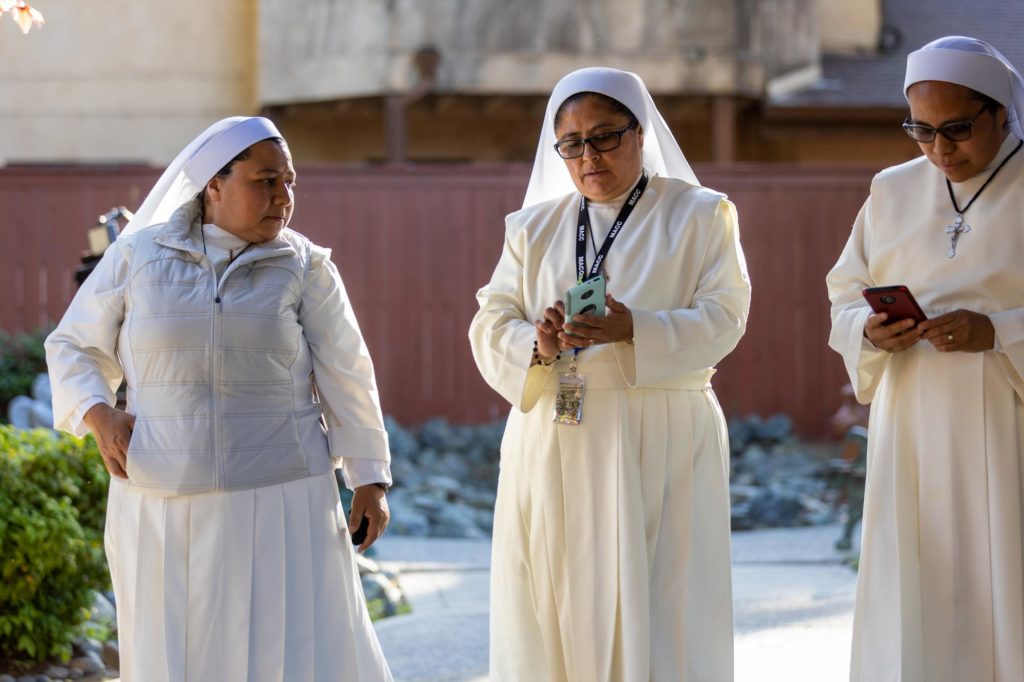
In rural Michigan, Sister Daysis and her sisters work to cultivate self-esteem among women and children. “There is a great need to orient them, counsel them, tell them their value and that we all have rights,” she said.
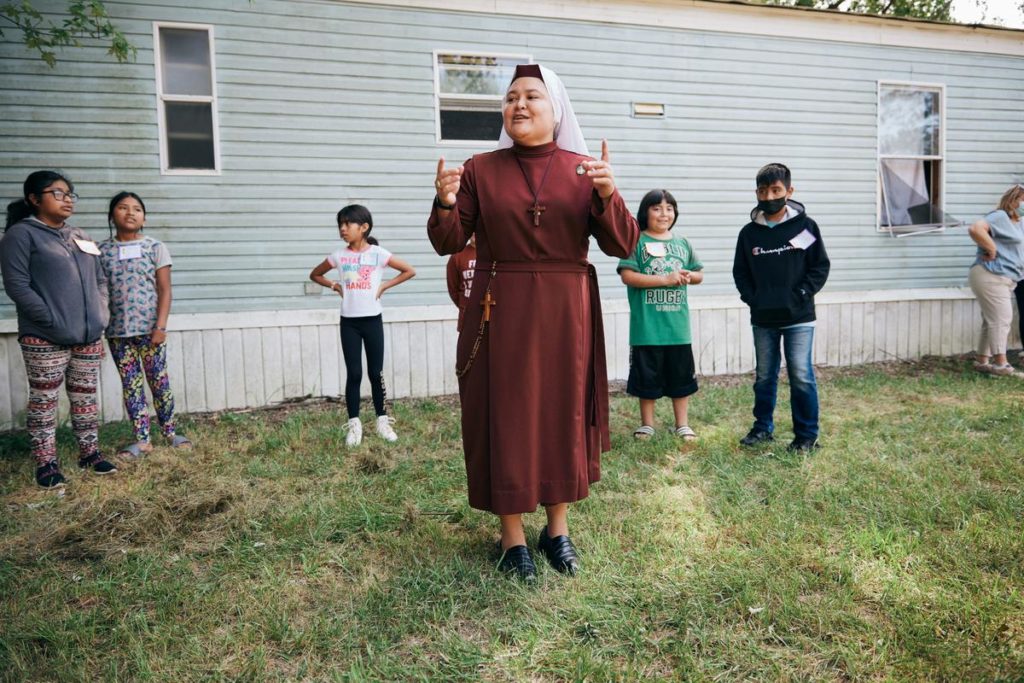
The community was hit hard by COVID-19, and many families lost several loved ones—sometimes within the span of just a few days. The sisters started a program called “Accompaniment Through Grief” in which they go directly into people’s homes to talk through the grieving process and pray with those who continue to suffer from these great losses.
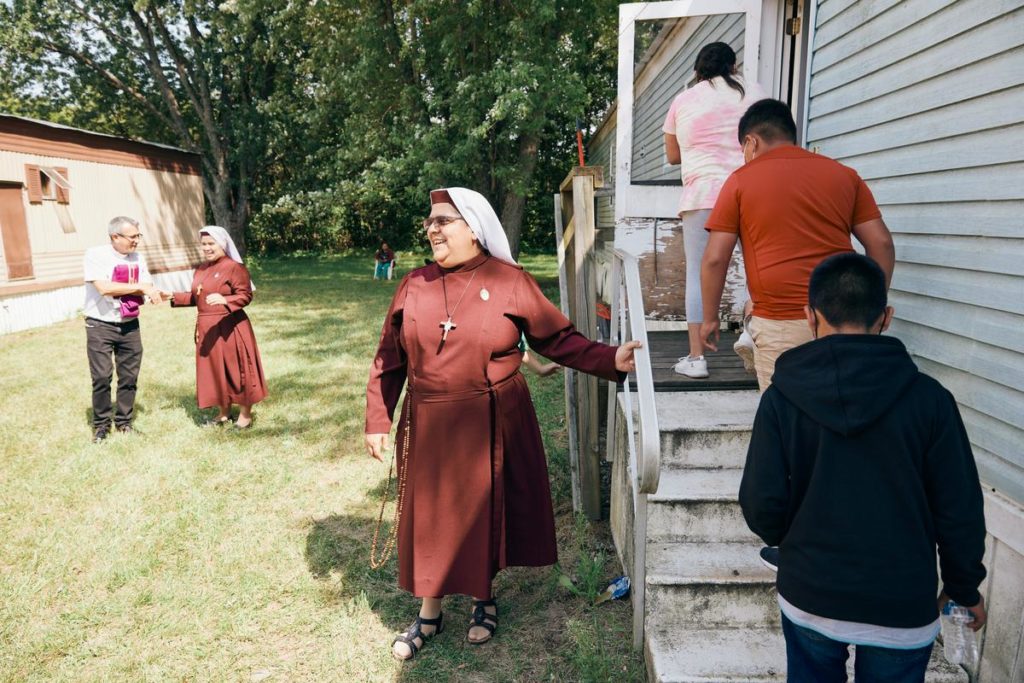
One woman, a mother of two, lost her mother and sister. Her oldest son called the sisters one day, desperately asking them to help his mother who was unwell and depressed. The sisters arrived at the home and consoled her, being present with her when she had no one else to turn to.
“We told her to have faith, that she was not alone,” said Sister Daysis. She continued:
That we are here, and we are her family—we are here to cry with you, suffer with you, laugh with you.”
In Arkansas, the sisters focus on tending to troubled teens and youth in a large parish that has suffered from young people taking their own lives. They began a ministry called “Listen and Accompany” through which they reach out to struggling youth and families.
“For them, just knowing that they have a safe haven for this, that they have us, is a gift from God,” said Sister Deyanira.
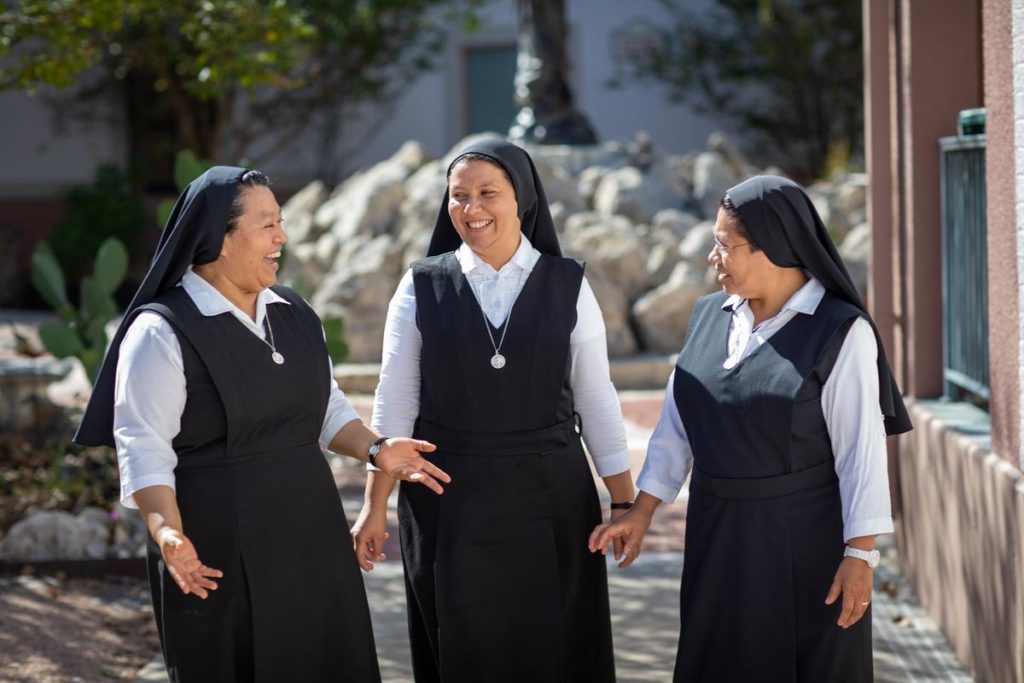
One woman approached the sisters in a state of great distress, unable to even eat or sleep. After the sisters listened to and helped her, she gradually found happiness again. She married her partner, became active in the Church and now helps promote the ministry to help others. She told the sisters that they saved her life.
Sister Deyanira described this aspect of their work as the essence of being a missionary. “It means being able to discover the presence of God wherever you are,” she said of her vocation. “To be the image of Jesus for others; for them to discover that you could be that for them, as you’re present with them in their pain.”
She continued,
And for us as missionaries, it’s about discovering the image of Jesus in each and every one of them.”
Sister Zuly and her two sisters in Butte County are helping the community recover from both the pandemic and the 2018 wildfire. They work with the Promotores Program, coordinated by Northern Valley Catholic Social Services, which provides health education and connects those in need with social services in the county. Due to language and cultural barriers, many Hispanic people do not have access to or are unaware of the available resources.
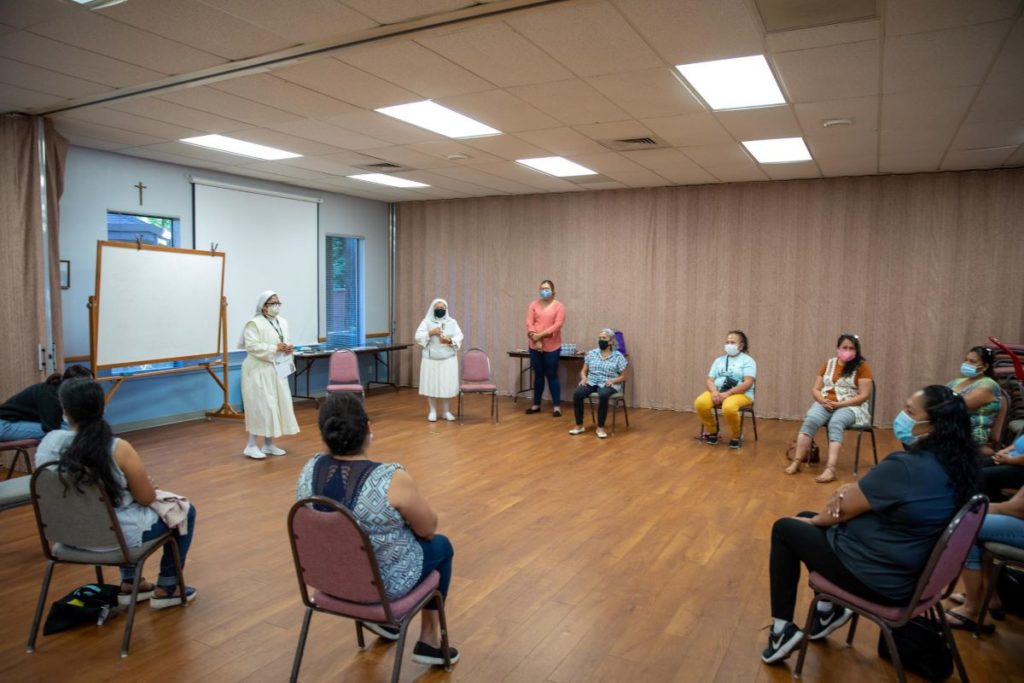
The sisters assist with food drives and help organize transportation to get people vaccinated. Far beyond these immediate needs, they uplift hundreds of individuals who continue to suffer from the trauma of the wildfire and pandemic.
These services are transformative for women who have not felt allowed to grieve while they take care of their families. Sister Zuly described one woman who lost her husband and was only able to begin healing after spending time with the sisters.
“They would tell us how they could never find relief, they could never cry, because they were the mothers, the wives, the nurturers—they had to sustain their families,” said Sister Zuly.
But today, they look at us as the ones who can sustain them.”
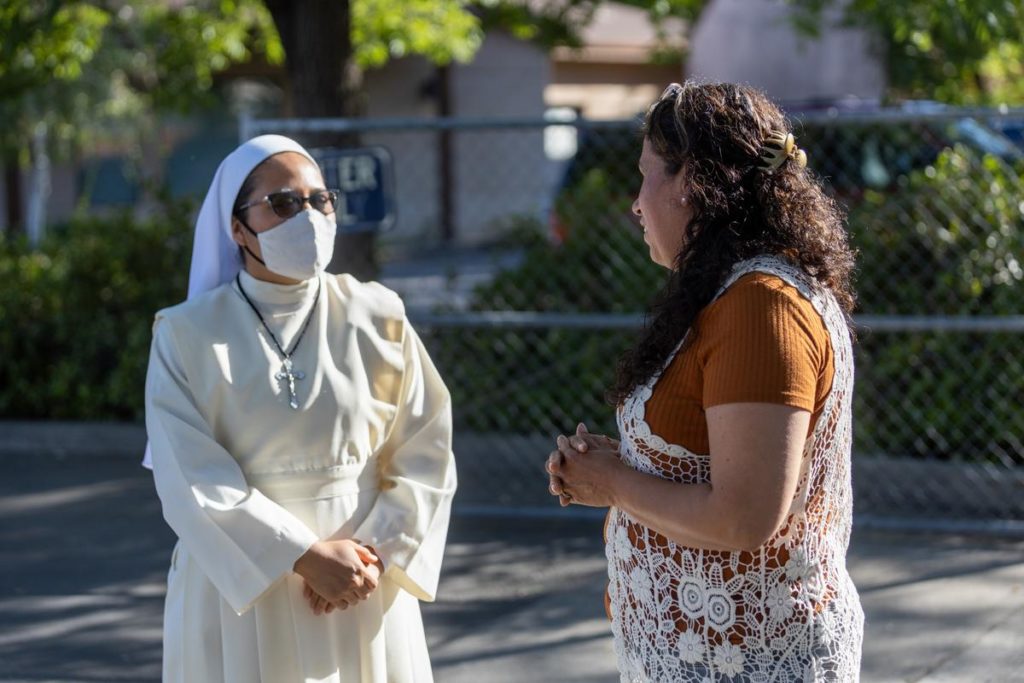
For Sister Gabriela, her roles at Catholic Social Services in Birmingham as a spiritual leader and humanitarian worker blend together naturally. She lives out her vocation by providing for the needs of those who are at the heart and soul of the Church—the poor and vulnerable.
She is a trusted, constant presence in the community, understanding the families and their needs through her involvement in the parishes. Through Catholic Social Services, she gives these individuals the tools they need to improve their situations.
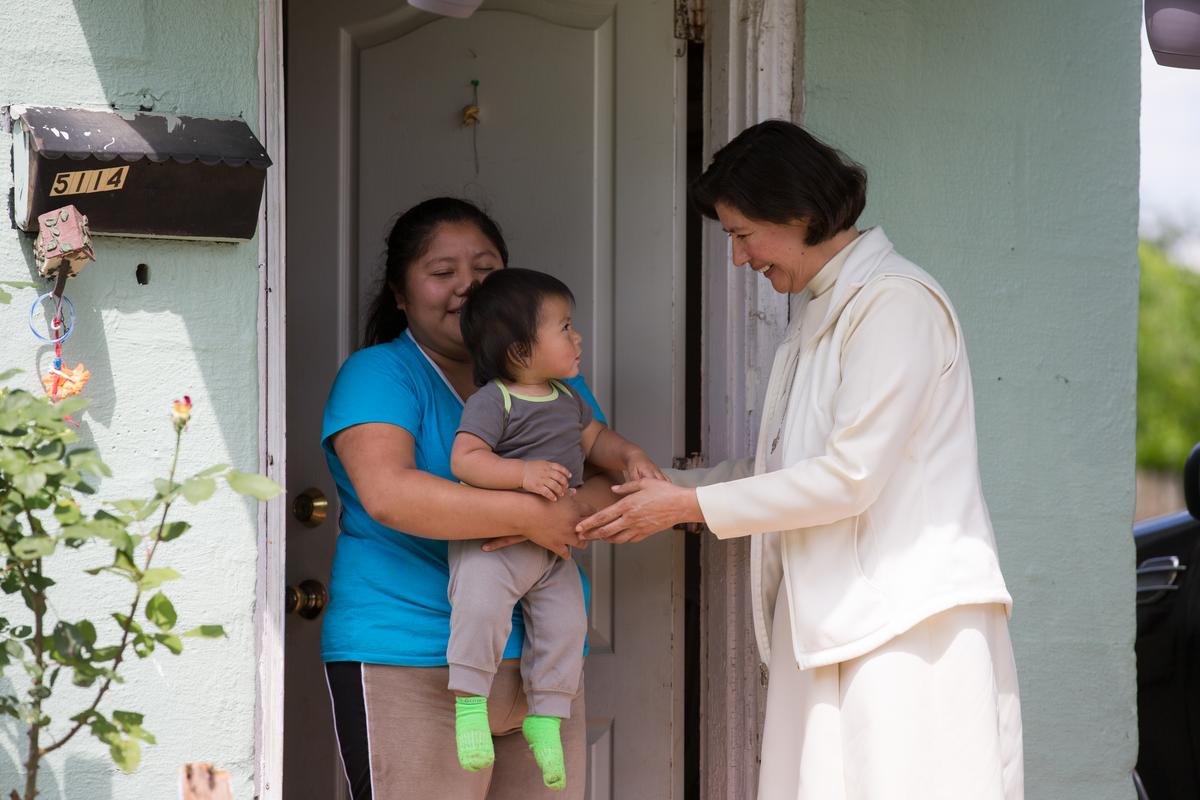
This ranges from attending to immediate needs such as support for rent, clothing and food to offering classes to learn English, improve their Spanish literacy and obtain citizenship.
Although her work focuses on the Hispanic community, Sister Gabriela emphasizes the universal mission of the Church. She said,
We serve everybody. Catholics are for everybody.”
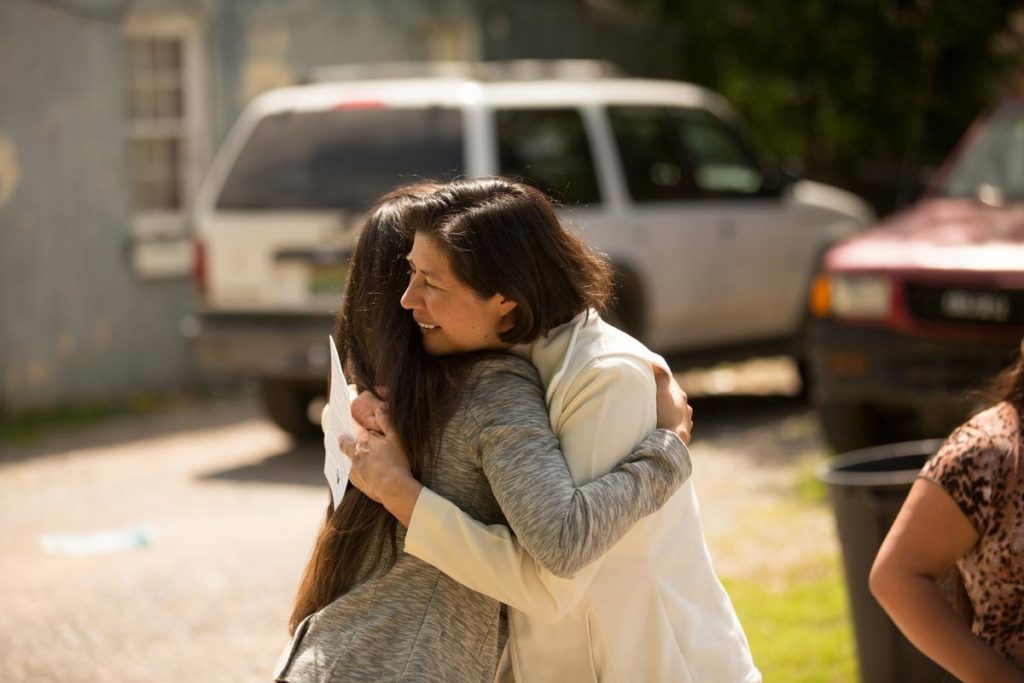
“To be a missionary is to love, to love everybody and to feel like home wherever we are, because we are there to serve,” she said. “We have been sent by God and by our congregation to be the face of God for the people and to let them know that God loves them.”
A missionary vocation
Catholic Extension Society is honored to continue the U.S.-Latin American Sisters Exchange Program through our partnership with the Conrad N. Hilton Foundation and through the support of our donors and other partner foundations. Furthermore, we are grateful for the sisters’ outstanding work and growth.
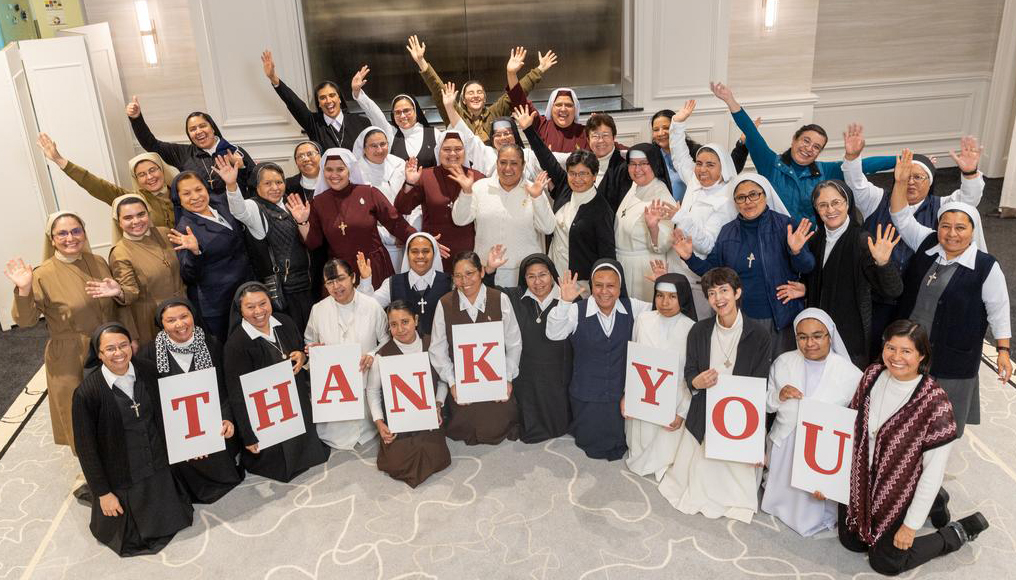
One hundred percent of the sisters in the first cohort reported the following: they felt the program had a positive impact on them personally and the communities they served; they would recommend the program to other sisters; they felt the training benefited them and their ministry and they felt the program helped them build relationships with other sisters and a strong community of Latina sisters.
Wonderfully, the program will soon expand to include an additional 70 Latina sisters from a variety of congregations and Latin American countries.
All of the sisters who currently minister in or have completed the program have bravely embarked on a groundbreaking pursuit that aligns with their missionary vocations to uplift the most neglected and marginalized among us. Their work to develop human potential goes further than enriching the lives of thousands of Hispanic people in the poorest regions of the country. By building up faith within families and parishes, the sisters are also creating a foundation of positive community involvement that will extend to future generations.
This article appears in Extension magazine‘s spring 2022 edition. Support our mission to receive the next print edition of the magazine.


